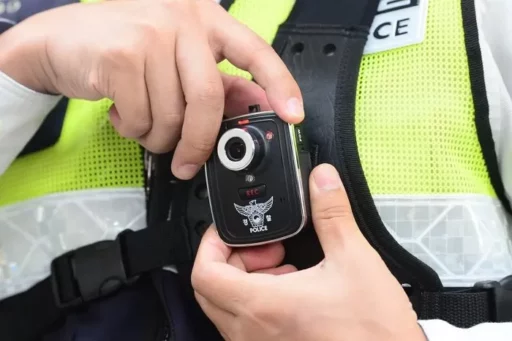Police Body Cameras: 14,000 Units to Be Distributed This Year, Enhancing Security Through Standardization
According to a statement released by the National Police Agency on the 23rd, 14,000 units of body cameras, worn by police officers, are set to be officially distributed to field officers by the end of this year.
Until now, many police officers have personally purchased body cameras at their own expense for evidence collection and self-protection. With the recent amendment to the Police Officer Duty Enforcement Act, body cameras have been officially designated as official police equipment, enabling standardized distribution at the national level.

As of March this year, approximately 2,000 body cameras were being used personally by police officers.
This not only alleviates the personal financial burden on officers but also addresses security issues that may arise from commercially available products, such as hacking or video tampering, through the introduction of standardized body cameras.
Body Camera Video Management System: Establishing a Rigorous Security Framework
The newly introduced body camera system is designed with a focus on security.
Captured footage is transmitted directly to the National Information Resource Management Center via a wireless relay, preventing arbitrary deletion or leakage of videos. Additionally, videos are encrypted at the time of capture, ensuring that even in the event of a leak, playback is impossible.

Police officers are required to inform individuals being recorded that they are being filmed, using lights or sounds when using the body cameras.
The collected video and audio recordings will be retained for 30 days from the date of collection before being automatically deleted.
The National Police Agency plans to actively utilize the video data collected from body cameras in public security policies moving forward. Notably, they intend to establish a system that rapidly analyzes large volumes of video data using artificial intelligence (AI) technology. Currently, AI automatically generates reports on the captured footage, but in the future, there are plans to implement more advanced technologies including the extraction of important incident information, facial recognition, and deepfake detection.
A total budget of 19.486 billion won will be allocated for the implementation of body cameras and system development by 2029.
The KT consortium, comprised of KT, CyberTel Bridge, and TS Line Systems, has been selected as the contractor for this initiative.

A police official stated, "By officially introducing body cameras, we aim to enhance the quality of evidence while minimizing the infringement of citizens' rights due to the abuse of public power." The introduction of body cameras is expected to significantly enhance the transparency of police activities and strengthen public trust.
Image sources: Stock photos to aid understanding of the article / gettyimagesbank, Stock photos to aid understanding of the article / News1, Photo = Insight


